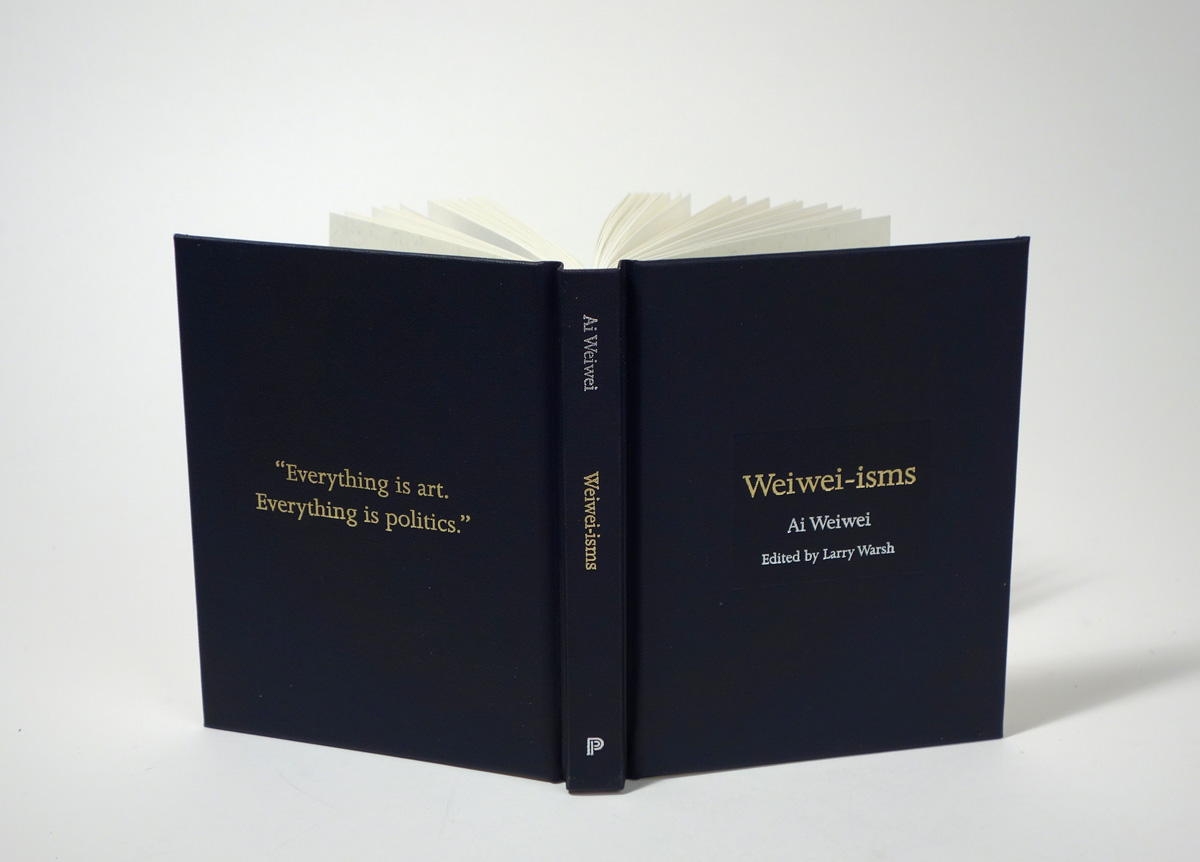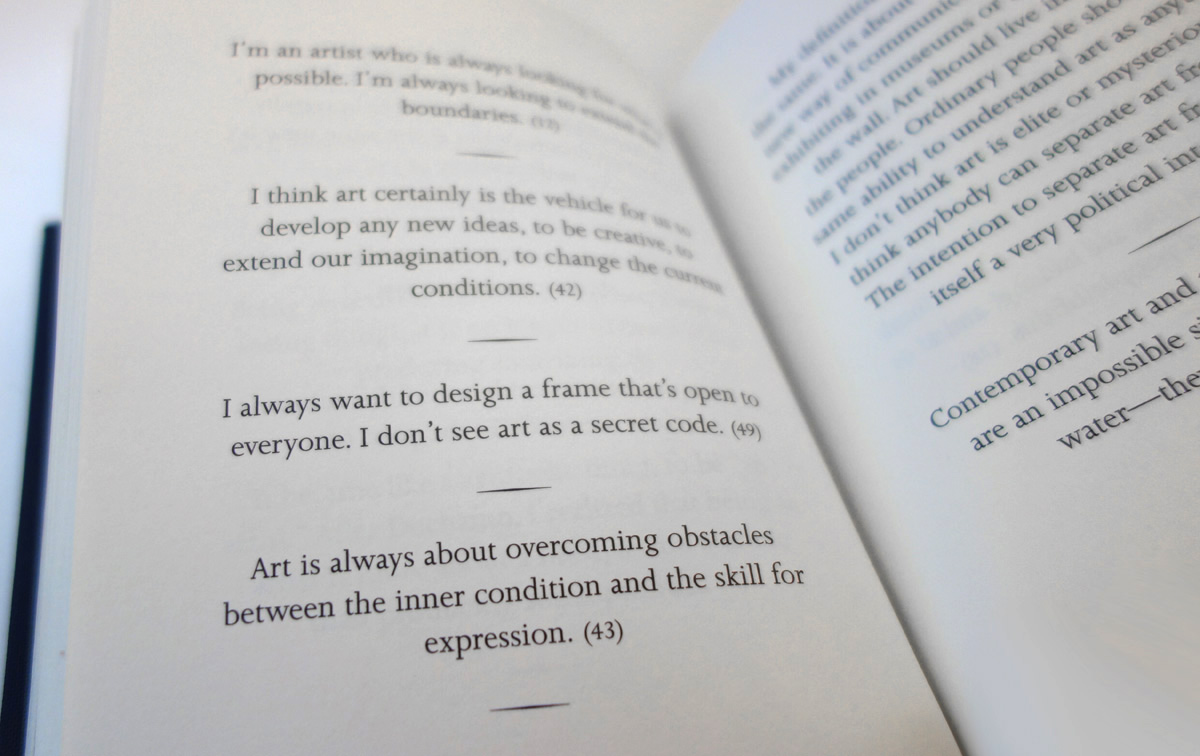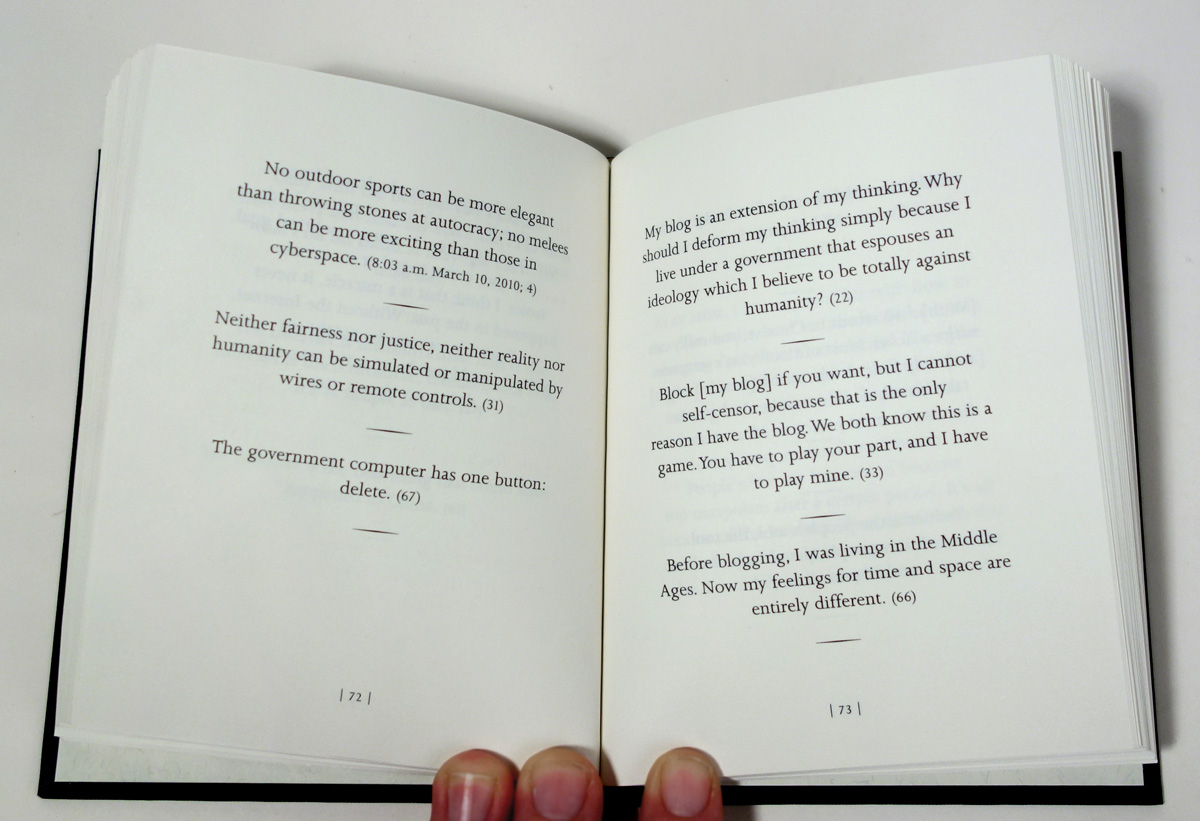Weiwei-isms
Intelligent ruminations from China’s most notorious radical artist


In his fight for freedom of expression, Ai Weiwei’s words are his ammunition. And fortunately, the controversial Chinese artist wields intellectual commentary with the voracity of a machine gun. For those who share his sentiments about the synonymity of art and activism, the new book “Weiwei-isms” is like having a nuclear arsenal of critical thinking right in your back pocket.
For Weiwei, “Everything is art. Everything is politics.” This is because, he explains in one of the myriad quotes comprising the tiny tome, “the choice of being an artist is political in China.” As the son of notable poet Ai Qing, Weiwei saw early on the consequences of speaking out when his father was exiled to a series of labor camps for his radical writings. He learned from his father, who employed several different pen names over the years, to always find new ways to communicate in order to expose the truth and affect social change. Not even the 81 days Weiwei spent in detention dampened his voice. From Twitter—”the people’s tool”—to art and architecture, Weiwei’s prolific output provokes discourse about the future state of China and the impact it will have on the world (“The world is a sphere, there is no East or West.”) as well as basic human rights and the cost of seeking freedom.

Assembled by Weiwei’s longtime friend and collaborator Larry Warsh, “Weiwei-isms” is at once a personal glimpse into the life of this progressive artist as well as simply an amalgamation of thoughts on what creativity and freedom of expression actually mean to the world. Weiwei’s honesty not only makes for a refreshing read, it serves as a reminder that we all have the ability to offer our opinions, the world isn’t defined. “Self-censorship is insulting to the self. Timidity is a hopeless way forward.”

Separated into six themes—freedom of expression; art and activism; government, power and making moral choices; the digital world; history, the historical moment and the future; personal reflections—the little black book of “Weiwei-isms” packs a serious, pensive punch.
“Weiwei-isms” sells online from Princeton University Press and Amazon.
Images by Cool Hunting












